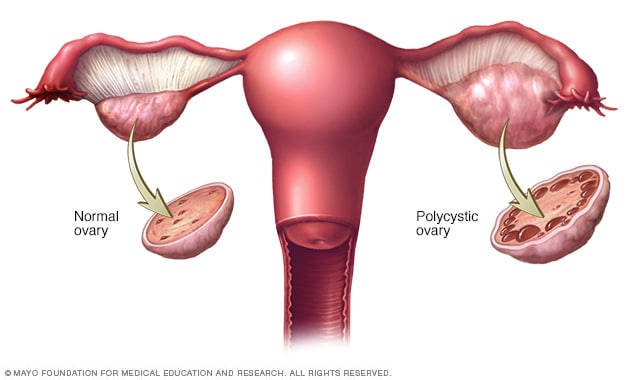causes
History
There is a 50% possibility of getting PCOD among the women whose immediate female relatives suffer from PCOD. As you grow older, this PCOD may lead to Type 2 diabetes, as PCOD is a risk factor for developing Diabetes Till now, a single gene has not yet found to be the cause of PCOD, and it is likely to be complex and involve multiple genes.
Insulin resistance & Lifestyle
About 70% women with PCOD have peripheral insulin resistance. The pancreas produces insulin, which is a hormone to help the body use sugar from foods for energy. Due to insulin resistance the cells can’t use insulin properly and the body’s demand for insulin increases. To compensate, the pancreas makes more insulin.
Factors of Insulin Resistance:
-Insulin resistance as a result of genetic factors
-Insulin resistance as a result of being overweight (related to diet and inactivity)
-A combination of both of these factors
Inflammation
PCOS can lead to increased levels of inflammation in women. And being overweight also can contribute to inflammation. Studies have shown in PCOD that excess inflammation is linked to higher androgen levels.
Weight
Sometimes, a higher weight may worsen insulin resistance and the symptoms of polycystic ovarian syndrome. Some women with PCOD report that they had never experienced symptoms such as menstrual irregularity or excessive hair growth and are a healthy weight. However, these symptoms only appear once they gain weight.
